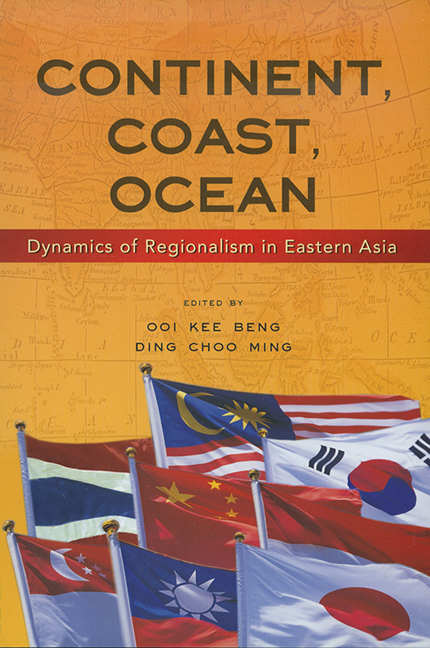Book contents
- Frontmatter
- Contents
- Foreword by Shamsul A.B.
- Contributors
- Introduction
- PART ONE PUTTING JAPANESE IMPERIAL HISTORY TO REST
- PART TWO THE ECONOMICS OF REGIONAL INTEGRATION
- 3 Myths and Miracles of Economic Development in East Asia: Policy Lessons for Malaysia in the Twenty-first Century
- 4 Towards a New Paradigm in East Asian Economic Studies
- PART THREE INTER-REGIONALISM AND REGIONALISM
- PART FOUR NEW KNOWLEDGE, NEW PROBLEMS, NEW SOLUTIONS
- Index
4 - Towards a New Paradigm in East Asian Economic Studies
from PART TWO - THE ECONOMICS OF REGIONAL INTEGRATION
Published online by Cambridge University Press: 21 October 2015
- Frontmatter
- Contents
- Foreword by Shamsul A.B.
- Contributors
- Introduction
- PART ONE PUTTING JAPANESE IMPERIAL HISTORY TO REST
- PART TWO THE ECONOMICS OF REGIONAL INTEGRATION
- 3 Myths and Miracles of Economic Development in East Asia: Policy Lessons for Malaysia in the Twenty-first Century
- 4 Towards a New Paradigm in East Asian Economic Studies
- PART THREE INTER-REGIONALISM AND REGIONALISM
- PART FOUR NEW KNOWLEDGE, NEW PROBLEMS, NEW SOLUTIONS
- Index
Summary
AN OVERVIEW OF PARADIGMS
East Asian economic studies have been based on three alternative paradigms: one mainstream and two rival paradigms. The mainstream paradigm involves basic economic thoughts derived from free-market theory, modernization theory and development economics. It argues, among other things, that economic development in East Asia and other regions can be achieved only through the implementation of a market economy along with free trade and free enterprise systems. Inputs from the West, such as capital, technology, institutions and cultural values, are essential, while traditional cultures and institutions of the Orient are considered to be obstacles to progress. High economic growth in East Asia is credited to the free market system, with the state playing a small role. Proponents of this paradigm include such well-known economists as Milton Friedman, Gustav Ranis, John C.H. Fei and Edward K.Y. Chen.
As early as in the 1970s, the mainstream paradigm was challenged by a neo-Marxist school of thought known as “dependency theory”. It asserts in general terms that “periphery capitalism” (that is, the capitalist system in the Third World) will inevitably result in dominance by “core” economies that will deprive the “peripheral” economies of any chance of “autonomous development”. Samir Amin and other dependency theorists applied this theory to Asia in the mid-1970s, arguing that none of the Asian economies had come close to “the stage of independent and autonomous development”, but on the contrary, “unequal development” and the dependency-dominance relationships in these economies had become a more serious problem than ever before. Some neo-Marxist theorists even went so far as to lump Asian economies together with other Third World regions under the vague category of “under-development”, which was said to be the consequence of “overdevelopment” in the core economies of the West. As the economic success of the Four Tigers became increasingly evident, however, this rival paradigm sank into oblivion.
The second rival paradigm came on the scene toward the end of the 1970s when the “economic miracle” of East Asia attracted the attention of the world's academic communities. Many prominent social scientists, including sociologist Peter Berger and political scientist Ezra Vogel, argued that the East Asian model of economic development was different from the free-market model, and undertook to develop an alternative “Asian type of modernization”, with emphasis placed on the contribution state interventions and traditional Confucian values make to economic success.
- Type
- Chapter
- Information
- Continent, Coast, OceanDynamics of Regionalism in Eastern Asia, pp. 84 - 102Publisher: ISEAS–Yusof Ishak InstitutePrint publication year: 2007



